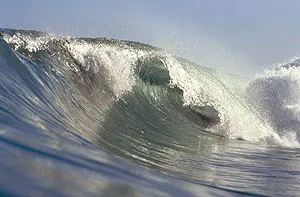
More than a hundred marine scientists, policy makers and members of industry have unanimously called for action towards an integrated network of observatories monitoring Europe’s seas.
Speaking at a forum ‘Towards a European Network of Marine Observatories’ held by the Marine Board of the European Science Foundation, Professor Richard Lampitt of the UK’s National Oceanography Centre said “We have the technology and the skills to monitor what is happening in the ocean; we now need to organise an effective network within Europe and harness that information for the future.”
Such a network would give reliable, long‐term data to underpin science and policy regarding the use of seas for fisheries, aquaculture, energy, shipping, as well as tourism and recreation.
“We should not take for granted the wealth and well‐being provided by the seas and oceans” said Lars Horn from the Research Council of Norway and chair of the Marine Board. “This call needs to be heard by national and European decision makers and budget holders. Stable, long‐term marine observations are essential so that we can interact with our marine environment in a sustainable way.”
Participants in the forum will adopt a joint vision for a European network of long‐term marine observatories. A wide‐range of issues related to marine observatories will be discussed: the role of observatories in providing marine knowledge, the technical challenges, the funding schemes and innovative governing structures needed.
Long‐term sets of data from the marine environment would enable us to better understand ocean, earth and climate system processes. They are also critical for monitoring the scale and extent of environmental change that affects global society and economy. According to the European Commission, a 25% reduction in uncertainty in future sea‐level rise alone could save €100 million annually in European coastal defences.
Professor Peter Haugan from the University of Bergen, Norway is moderating the discussions and will carry the message to the EurOCEAN 2010 Conference, a high-level science policy event organised by the Belgian EU Presidency on 12–13 October 2010 in Ostend, Belgium.
At this conference the European marine and maritime research community is expected to call on the Member and Associated States of the European Union and the EU institutions, to recognise that “The seas and oceans are one of the Grand Challenges for the 21st Century”. A European network of long‐term marine observatories for monitoring and research would provide an effective tool to address this challenge.